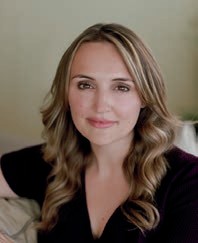CHARACTER DEVELOPMENT: Writing characters over time
Novelist Amy Neff looks at evolving the characters in your fiction over the course of their lifetime, with advice on how you can develop them as they go through different life stages

©Sophie Rosokoff
As a novelist, it is a privilege to be with your characters over a long period of time. Writing characters across many decades is no easy feat because you must hold their personal histories in your mind, and any small change can have massive ripple effects.
I have known my main characters Evelyn and Joseph for their entire lives, and in turn they have been with me for over ten years, a third of my life, as I wrote their story.
My debut novel The Days I Loved You Most begs the question, what if we could choose how our story ends? It tells of Joseph and Evelyn’s love from the very beginning to the very end, and it spans sixty years of their life together. It explores what it means to love someone for a lifetime, how that love shifts and change with time, and how to build a life well-lived within the framework of an all-consuming love.
The novel started out as a dual-POV story, with just the two main characters Joseph and Evelyn represented. A developmental editor I worked with along the way made the case for me to add chapters from the perspectives of their three adult children, because their love story does not exist in a vacuum, and their decisions deeply affect their family.
At this point, I was nine years into the process of writing and revising this book. I had spent so long in Joseph and Evelyn’s heads, but now I was given the task of creating three new chapters from blank pages, from new points of view I had not yet explored, and fitting them inside the narrative as though they had always been there.